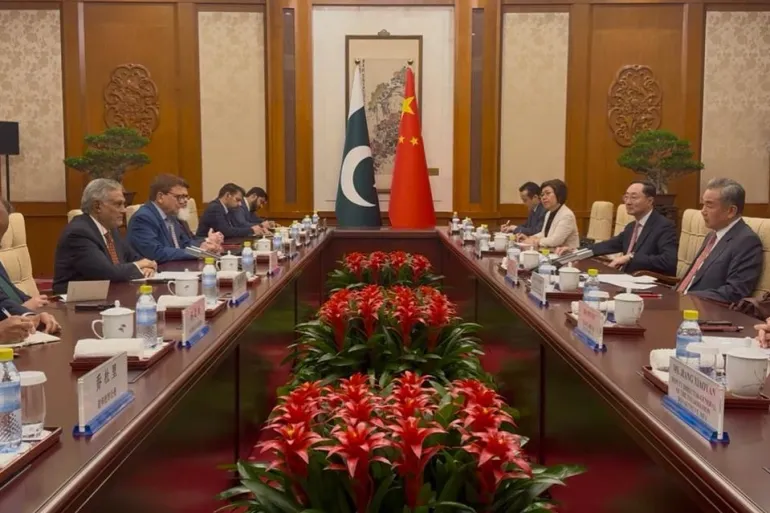Pakistan has reaffirmed its strategic alliance with China during a high-level diplomatic meeting in Islamabad, as concerns mount over renewed tensions with India and the shifting geopolitical calculus under a potential second Trump presidency in the United States.
Pakistani Prime Minister Shehbaz Sharif hosted Chinese Vice Premier Liu Guozhong for a series of bilateral talks focused on expanding economic and military cooperation, with both sides vowing to deepen ties under the China-Pakistan Economic Corridor (CPEC) framework. The meeting also served as a symbolic rebuke to India and its increasingly warm relations with Washington.
“Pakistan and China are iron brothers, partners in peace and development,” Sharif said during a joint press conference. “Our commitment to this all-weather friendship remains unwavering, regardless of the changing tides in global politics.”
The renewed emphasis on the China-Pakistan relationship comes just as the fragile ceasefire agreement with India along the Line of Control (LoC) appears to be under strain. Minor cross-border skirmishes and inflammatory rhetoric from both sides have sparked fears of a return to hostilities, especially amid speculation that former U.S. President Donald Trump—now the Republican frontrunner for 2024—might take a less stabilizing role in South Asia if re-elected.
Senior Pakistani officials expressed concern that Trump’s return could lead to diminished U.S. pressure on India regarding Kashmir and potentially embolden New Delhi’s military posture. “We must prepare for all scenarios, and that includes reasserting our sovereignty and bolstering alliances with our trusted friends,” a Pakistani foreign ministry source told Al Jazeera.
China, for its part, reiterated its support for Pakistan’s territorial integrity and said it opposes any unilateral changes to the status quo in Kashmir. Vice Premier Liu stated that China “stands firmly with Pakistan in defending its national interests” and highlighted joint infrastructure, energy, and defense projects as pillars of the strategic relationship.
The two countries signed several memoranda of understanding during Liu’s visit, including agreements on agricultural cooperation, digital connectivity, and a proposed expansion of Chinese investment in Pakistan’s Gwadar Port—seen by both sides as a flagship CPEC initiative and a counterweight to India’s naval presence in the Indian Ocean.
The timing of the meeting is also significant as Pakistan prepares for national elections later this year. Observers say the government is eager to project strength and diplomatic clout amid a struggling economy and rising domestic political tensions.
Meanwhile, India has downplayed the Pakistan-China talks. A spokesperson for the Indian Ministry of External Affairs stated that “nations are free to pursue bilateral relations, but provocations and third-party interference in regional matters are not helpful.”
In Washington, reactions to the visit have been muted, though U.S. officials have privately expressed unease over growing Chinese influence in South Asia. While the Biden administration continues to court India as a strategic counterweight to China, it has also attempted to keep diplomatic channels open with Pakistan, particularly in areas such as counterterrorism and climate resilience.
Analysts say the renewed China-Pakistan alignment could further complicate U.S. policy in the region. “What we’re seeing is a recalibration of alliances based on anticipation of global shifts,” said Michael Kugelman, director of the South Asia Institute at the Wilson Center. “Pakistan is hedging its bets, and China is eager to expand its strategic footprint.”
As Islamabad and Beijing draw closer, the broader regional balance may be reshaped by a combination of electoral politics, unresolved border disputes, and the looming influence of global superpowers. For now, Pakistan’s message is clear: its future is increasingly intertwined with China, regardless of who occupies the White House.
Source: Al Jazeera



